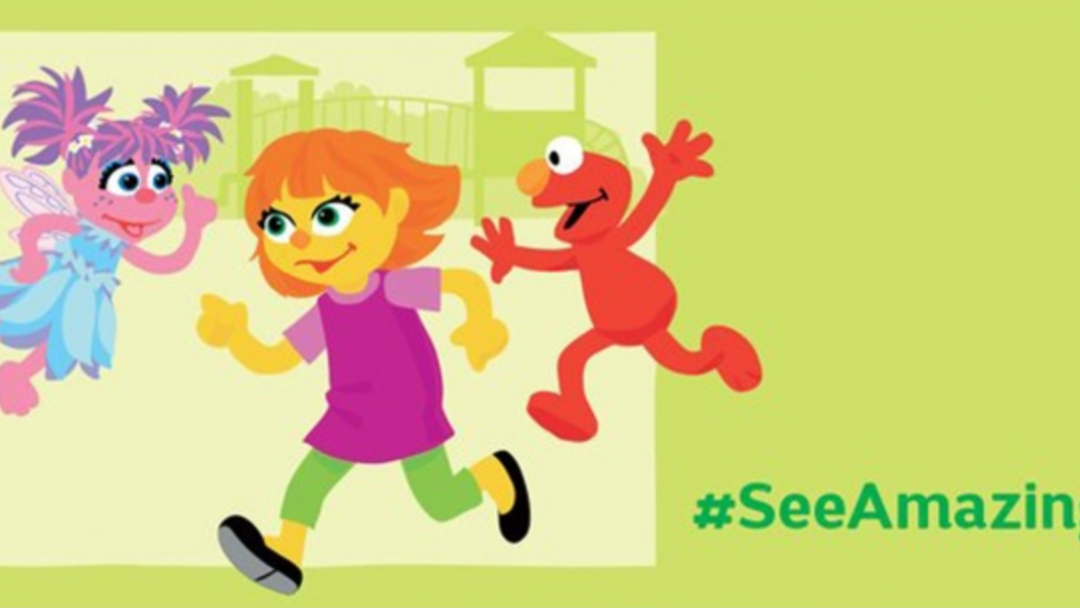Sesame Street, which has brought to life many issues throughout the years has recently done it again. In April they introduced Julia, the first Muppet with autism spectrum disorder (ASD). Even before debuting on screen, Julia made an impact, by helping to show findings from a Georgetown University study that showed the positive impact of digital videos and eBooks in empowering ASD kids and parents.
With a lot of misconceptions in the world about autism and those affected by it, researchers and developers have taken on a new level of responsibility to help educate the public, and find ways to positively impact those who have it.
According to Sherrie Westin, EVP of global impact and philanthropy at Sesame Workshop, “The original strategy for Julia was to create her as a digital Muppet with online videos and eBooks (through their See Amazing in All Children website), because we knew kids with autism used mobile and tablet devices a great deal.” Julia’s digital videos reached over 1 billion views, prompting Sesame Workshop to change their strategy and make her a regular on the hit TV series.
With the help of 14 different organizations focused on autism and autism awareness, Westin worked to accurately portray Julia as a child who is in the mid-range of the autism spectrum so that others could truly learn from the character.
Dr. Bruno Anthony, deputy director at Georgetown’s Center for Child and Human Development says that Julia and Sesame’s See Amazing in All Children site is exactly what both those learning about autism and those affected by it need,
“What hit home the most for parents of kids without autism were the videos that showed autistic kids interacting in various situations,” said Dr. Anthony, “Based on comments, parents understood things better once they saw these kids in everyday scenarios. They may be behaving differently, but it’s all very positive. We compare this to educating people about mental health and reducing stigma and attitudes toward it.”
Other digital programs have also been making an impact for those with autism, Code For Life, an Australian based app has a goal to encourage independence through the order of daily events, such as a child’s morning routine. According to its developer, Craig Smith, “Coding just became part of Australia’s national curriculum. While not all of my students are going to be app developers or engineers, they will learn some of the foundations around logic, sequence and problem-solving. These are very particular concepts that can teach life skills.”
The digital age is truly shifting and helping the autism community. These are only two of many more programs out there that are making a huge difference in both the education of and information dissemination to the public about these life-altering conditions.
